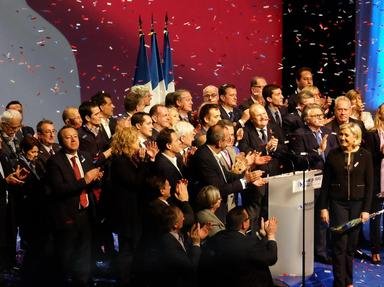Quiz Answer Key and Fun Facts
1. George H. W. Bush (Republican Party)
2. Jimmy Carter (Democratic Party)
3. Robert Dole (Republican Party)
4. Michael Dukakis (Democratic Party)
5. Gerald R. Ford (Republican Party)
6. Barry M. Goldwater (Republican Party)
7. Hubert H. Humphrey (Democratic Party)
8. George McGovern (Democratic Party)
9. Walter Mondale (Democratic Party)
10. Richard M. Nixon (Republican Party)
Source: Author
bernie73
This quiz was reviewed by FunTrivia editor
stedman before going online.
Any errors found in FunTrivia content are routinely corrected through our feedback system.

